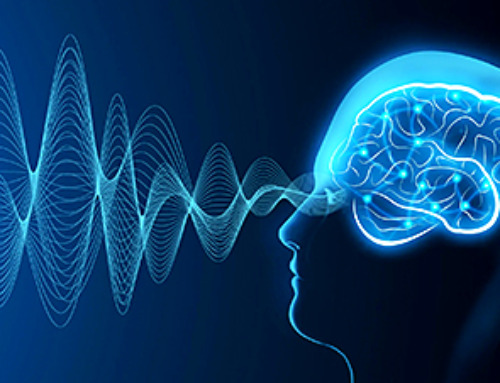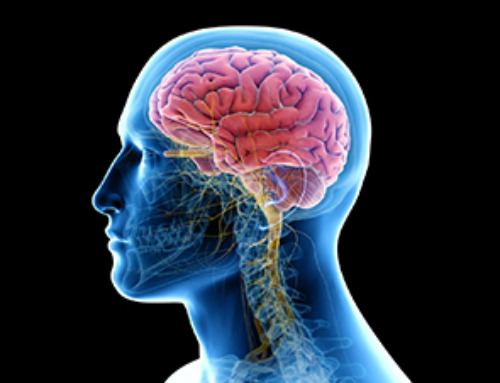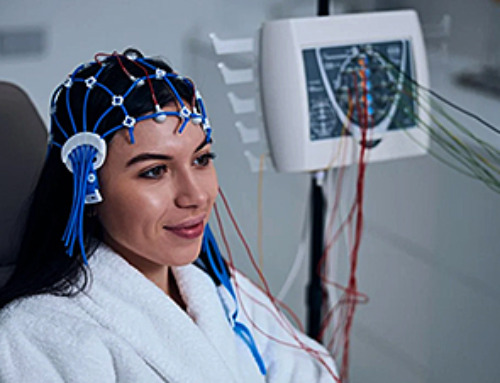Markers that indicate the presence of Parkinson’s disease in patients on average seven years before clinical presentation have been identified by a UCL and Moorfields Eye Hospital research team.
The study, published today in Neurology, identified markers of Parkinson’s in eye scans with the help of AI. Its analysis of the AlzEye dataset was repeated using the wider UK Biobank database (healthy volunteers), which replicated the discoveries.
The use of these two large, powerful datasets has enabled the team to identify these subtle markers, even though Parkinson’s disease has a relatively low prevalence (0.1–0.2% of the population). Generation of the AlzEye dataset was enabled by INSIGHT, the world’s largest database of retinal images and associated clinical data.
The use of data from eye scans has previously revealed signs of other neurodegenerative conditions, including Alzheimer’s, multiple sclerosis and, most recently, schizophrenia, in an emerging and exciting field of research referred to as “oculomics.”
Eye scans and eye data have also been able to reveal a propensity to high blood pressure; cardiovascular disease including strokes; and diabetes.
Doctors have known for a long time that the eye can act as a “window” to the rest of the body, giving a direct insight into many aspects of our health. High-resolution images of the retina are now a routine part of eye care—in particular, a type of 3D scan known as “optical coherence tomography” (OCT), which is widely used in eye clinics and high-street opticians. In less than a minute, an OCT scan produces a cross-section of the retina (the back of the eye) in incredible detail—down to a thousandth of a millimeter.
These images are extremely useful for monitoring eye health, but their value goes much further, as a scan of the retina is the only non-intrusive way to view layers of cells below the skin’s surface. In recent years, researchers have started to use powerful computers to accurately analyze large numbers of OCTs and other eye images, in a fraction of the time it would take a human.
Using a type of AI known as “machine learning,” computers are now able to uncover hidden information about the whole body from these images alone. Harnessing this new potential is what oculomics is about.
Lead author Dr. Siegfried Wagner (UCL Institute of Ophthalmology and Moorfields Eye Hospital), who is also principal investigator of several other AlzEye studies, said, “I continue to be amazed by what we can discover through eye scans. While we are not yet ready to predict whether an individual will develop Parkinson’s, we hope that this method could soon become a pre-screening tool for people at risk of disease.”
“Finding signs of a number of diseases before symptoms emerge means that, in the future, people could have the time to make lifestyle changes to prevent some conditions arising, and clinicians could delay the onset and impact of lifechanging neurodegenerative disorders.”
This work has involved collaboration between the NIHR (National Institute of Health and Social Care) Biomedical Research Centers at Moorfields Eye Hospital, University Hospital Birmingham, Great Ormond Street Hospital (GOSH), Oxford University Hospital, University College Hospital London and the UCL Great Ormond Street Institute of Child Health. The scope and quality of the research has been maximized through these exceptional NHS research partnerships.
Professor Alistair Denniston, consultant ophthalmologist at University Hospitals Birmingham, professor at the University of Birmingham and part of NIHR Moorfields BRC said, “This work demonstrates the potential for eye data, harnessed by the technology to pick up signs and changes too subtle for humans to see. We can now detect very early signs of Parkinson’s, opening up new possibilities for treatment.”
Louisa Wickham, Moorfields’ medical director, explained, “Increasing imaging across a wider population will have a huge impact on public health in the future, and will eventually lead to predictive analysis. OCT scans are more scalable, non-invasive, lower cost and quicker than brain scans for this purpose.”
News
Scientists Develop a New Way To See Inside the Human Body Using 3D Color Imaging
A newly developed imaging method blends ultrasound and photoacoustics to capture both tissue structure and blood-vessel function in 3D. By blending two powerful imaging methods, researchers from Caltech and USC have developed a new way to [...]
Brain waves could help paralyzed patients move again
People with spinal cord injuries often lose the ability to move their arms or legs. In many cases, the nerves in the limbs remain healthy, and the brain continues to function normally. The loss of [...]
Scientists Discover a New “Cleanup Hub” Inside the Human Brain
A newly identified lymphatic drainage pathway along the middle meningeal artery reveals how the human brain clears waste. How does the brain clear away waste? This task is handled by the brain’s lymphatic drainage [...]
New Drug Slashes Dangerous Blood Fats by Nearly 40% in First Human Trial
Scientists have found a way to fine-tune a central fat-control pathway in the liver, reducing harmful blood triglycerides while preserving beneficial cholesterol functions. When we eat, the body turns surplus calories into molecules called [...]
A Simple Brain Scan May Help Restore Movement After Paralysis
A brain cap and smart algorithms may one day help paralyzed patients turn thought into movement—no surgery required. People with spinal cord injuries often experience partial or complete loss of movement in their arms [...]
Plant Discovery Could Transform How Medicines Are Made
Scientists have uncovered an unexpected way plants make powerful chemicals, revealing hidden biological connections that could transform how medicines are discovered and produced. Plants produce protective chemicals called alkaloids as part of their natural [...]
Scientists Develop IV Therapy That Repairs the Brain After Stroke
New nanomaterial passes the blood-brain barrier to reduce damaging inflammation after the most common form of stroke. When someone experiences a stroke, doctors must quickly restore blood flow to the brain to prevent death. [...]
Analyzing Darwin’s specimens without opening 200-year-old jars
Scientists have successfully analyzed Charles Darwin's original specimens from his HMS Beagle voyage (1831 to 1836) to the Galapagos Islands. Remarkably, the specimens have been analyzed without opening their 200-year-old preservation jars. Examining 46 [...]
Scientists discover natural ‘brake’ that could stop harmful inflammation
Researchers at University College London (UCL) have uncovered a key mechanism that helps the body switch off inflammation—a breakthrough that could lead to new treatments for chronic diseases affecting millions worldwide. Inflammation is the [...]
A Forgotten Molecule Could Revive Failing Antifungal Drugs and Save Millions of Lives
Scientists have uncovered a way to make existing antifungal drugs work again against deadly, drug-resistant fungi. Fungal infections claim millions of lives worldwide each year, and current medical treatments are failing to keep pace. [...]
Scientists Trap Thyme’s Healing Power in Tiny Capsules
A new micro-encapsulation breakthrough could turn thyme’s powerful health benefits into safer, smarter nanodoses. Thyme extract is often praised for its wide range of health benefits, giving it a reputation as a natural medicinal [...]
Scientists Develop Spray-On Powder That Instantly Seals Life-Threatening Wounds
KAIST scientists have created a fast-acting, stable powder hemostat that stops bleeding in one second and could significantly improve survival in combat and emergency medicine. Severe blood loss remains the primary cause of death from [...]
Oceans Are Struggling To Absorb Carbon As Microplastics Flood Their Waters
New research points to an unexpected way plastic pollution may be influencing Earth’s climate system. A recent study suggests that microscopic plastic pollution is reducing the ocean’s capacity to take in carbon dioxide, a [...]
Molecular Manufacturing: The Future of Nanomedicine – New book from Frank Boehm
This book explores the revolutionary potential of atomically precise manufacturing technologies to transform global healthcare, as well as practically every other sector across society. This forward-thinking volume examines how envisaged Factory@Home systems might enable the cost-effective [...]
New Book! NanoMedical Brain/Cloud Interface – Explorations and Implications
New book from Frank Boehm, NanoappsMedical Inc Founder: This book explores the future hypothetical possibility that the cerebral cortex of the human brain might be seamlessly, safely, and securely connected with the Cloud via [...]
Global Health Care Equivalency in the Age of Nanotechnology, Nanomedicine and Artificial Intelligence
A new book by Frank Boehm, NanoappsMedical Inc. Founder. This groundbreaking volume explores the vision of a Global Health Care Equivalency (GHCE) system powered by artificial intelligence and quantum computing technologies, operating on secure [...]





















